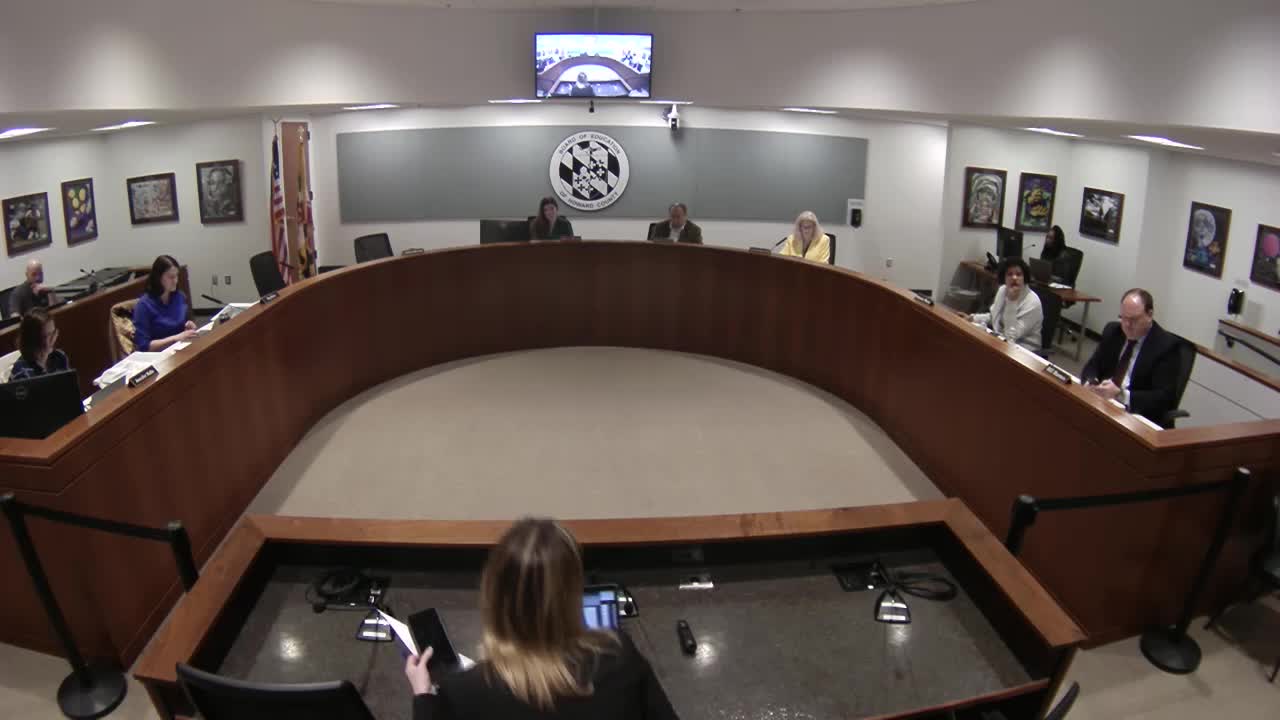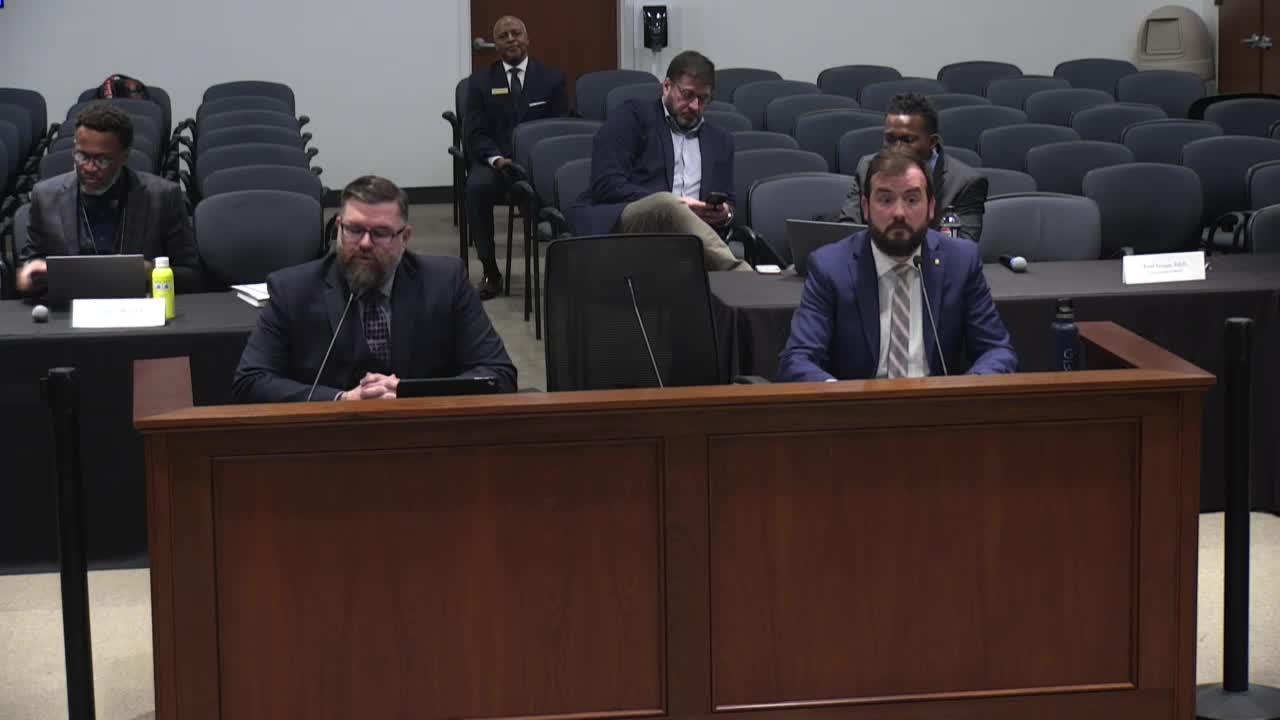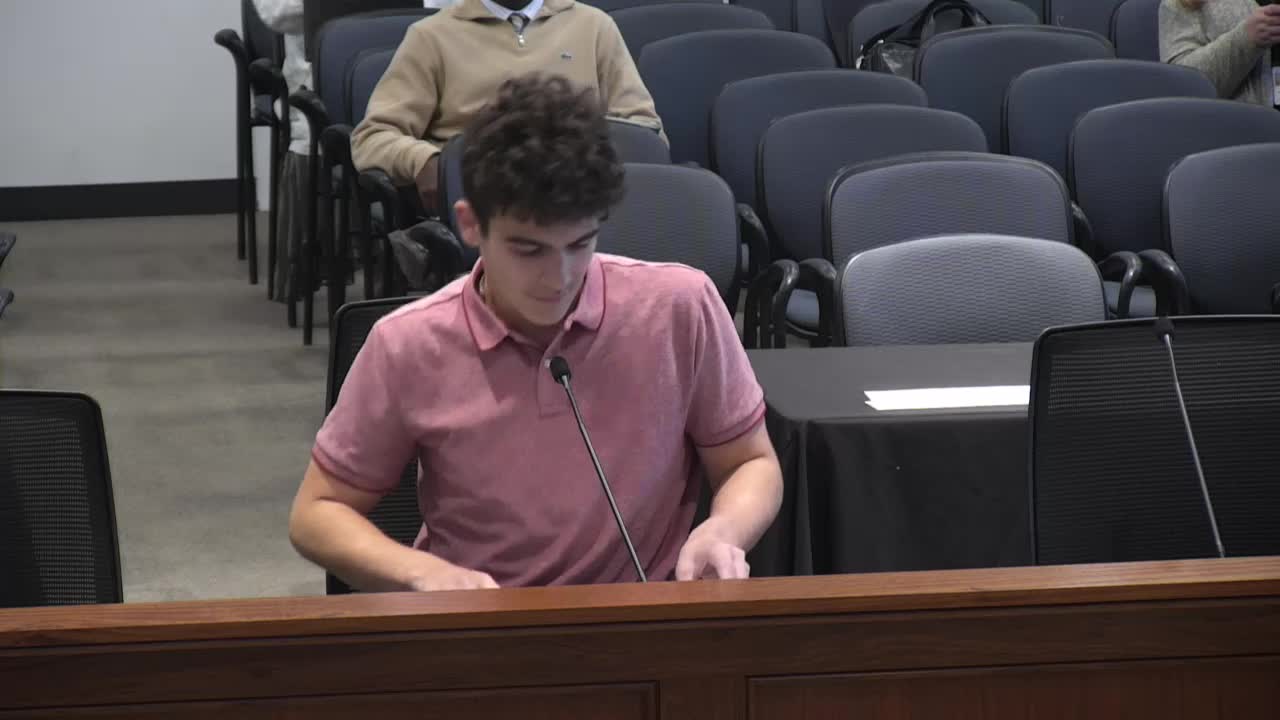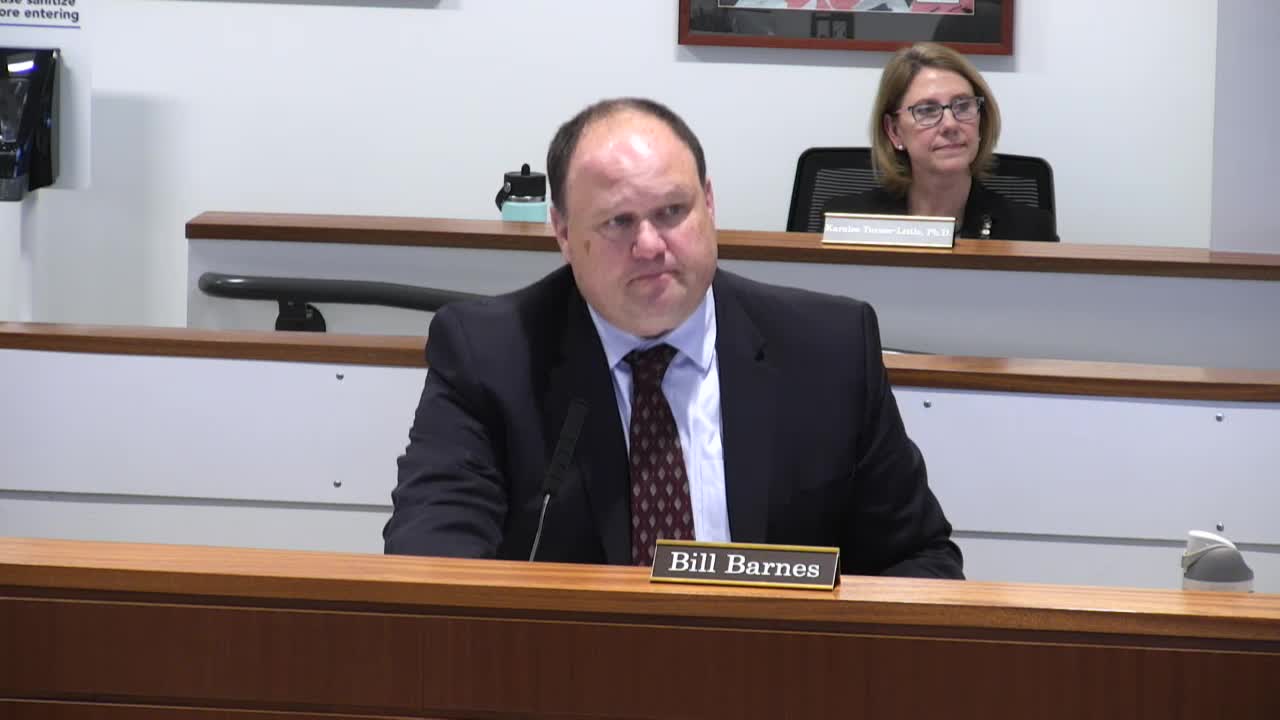Article not found
This article is no longer available. But don't worry—we've gathered other articles that discuss the same topic.

Board opposes statewide superintendent buyout bill; approves legislative positions with amendment to confidentiality for weapon‑detection studies

Board approves design‑development for Faulkner Ridge Early Learning Center, moves project to construction documents

Students, parents and staff urge changes to new personal‑device policy as public comment centers on Spotify ban and safety concerns

